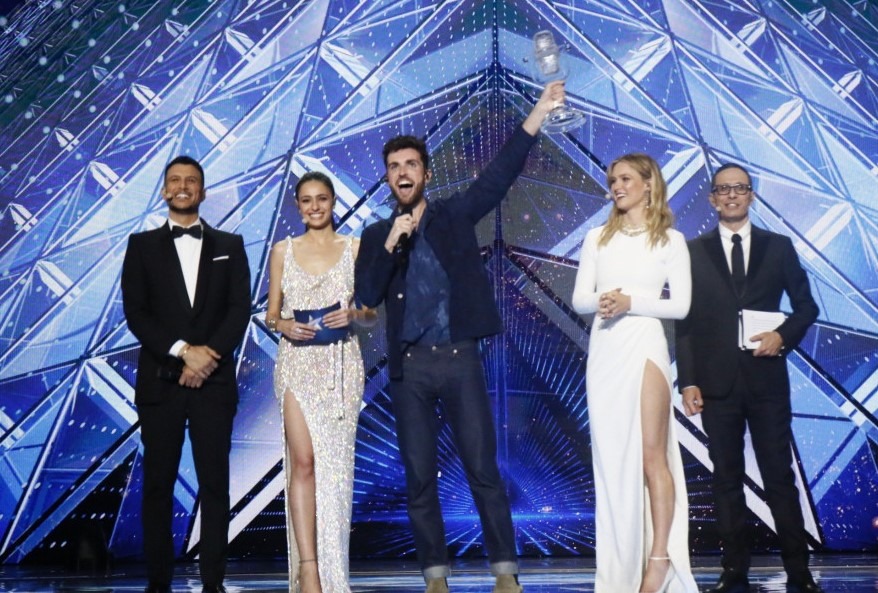After a thrilling voting process to the very end, Duncan Laurence with Arcade from the Netherlands won the Eurovision Song Contest early Sunday morning in Tel Aviv. The Netherlands secured their first victory since 1975 with 492 points. Italy finished second with 465 points, Russia was third with 369 points, Switzerland was 4th with 360 points. Norway took 5th place with 338 points, six ahead of Sweden in 6th place. The United Kingdom finished in 26th place, just behind Germany and Belarus.
The televote changed dramatically the results from the national juries where countries often gave the highest number of points to their neighbours. Sweden´s John Lundvik finished first amongst the 41 national juries with 239 points, just two ahead of North Macedonia, but did not get enough points in the televote to keep his lead.
24-year-old Duncan Laurence was born in 1994 in Spijkenisse, the Netherlands, and graduated this year from the Rock Academy in Tilburg. There he developed himself as a singer, songwriter and music producer. Besides that, he spent a lot of time writing songs in London and Stockholm.
"I grew up in a town where music was a stranger. Music had no part in the regular school system. But that couldn’t keep me from making music. Somehow, I was drawn to its magical ways to express myself and tell my own story,” he said before the song contest in Tel Aviv.
"My youth wasn’t always easy. I was bullied a lot and couldn’t defend myself. Music was a safe haven, a place where I was not insecure and where I could let my emotions run free.
After his victory was confirmed, Duncan appeared in front of hundreds of journalists from around the world at the Winners' Press Conference to tell them about his experience.
Duncan told the journalists that, as the votes were being announced, his heart was beating incredibly hard: "I'm glad I'm still here," he joked. "The votes take a long time. Next year we shouldn't do that, you could get a heart attack from it."
Asked about being honest and open about sexuality and what advice he would give the LGBT community, he replied that “the most important thing, of course, is to stick to who you are and see yourself as I see myself - a human being who has talents, who can do things.”
Looking forwards, he said that he had exchanged numbers with John Lundvik so that they could write together in the future. He also shared that, of all the past Eurovision artists, he would like to collaborate with Måns Zelmerlöw, another Swedish singer who won the song contest in 2015 with Heroes.
What does Duncan want his Eurovision legacy to be? "When you believe in your music, when you believe in your artistry, really believe in the artistry and the hard work, do it."
The 64th Eurovision Song Contest in Tel Aviv proved to be a spectacular and well-organised show at Expo Tel Aviv, despite calls to boycott the event in Israel, with Madonna performing with her new hit before the voting started.
Iceland that had threatened to boycott the event did come and finished on 10th place with Hatari, a piece of dystopian anti-capitalist performance art, but used the event to protest against Israel.
Israel benefited from the event by showing “postcard”-videos with all delegations from different beautiful places mostly inside its 1967 borders. Its own song, however, finished almost in the bottom of the contest.
The Brussels Times

